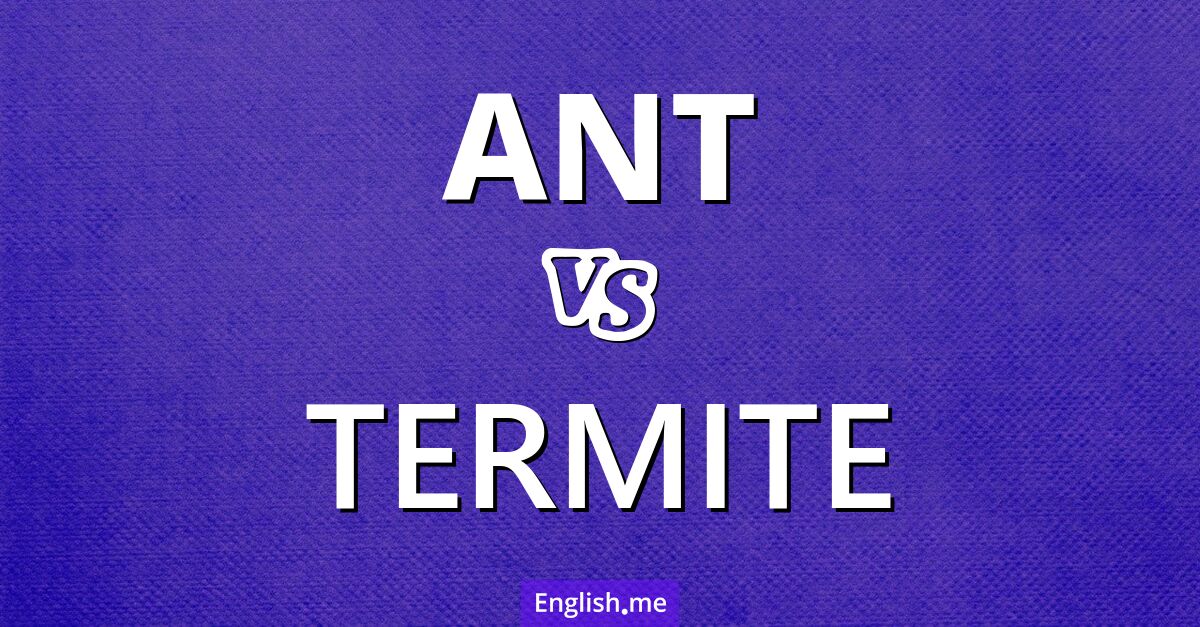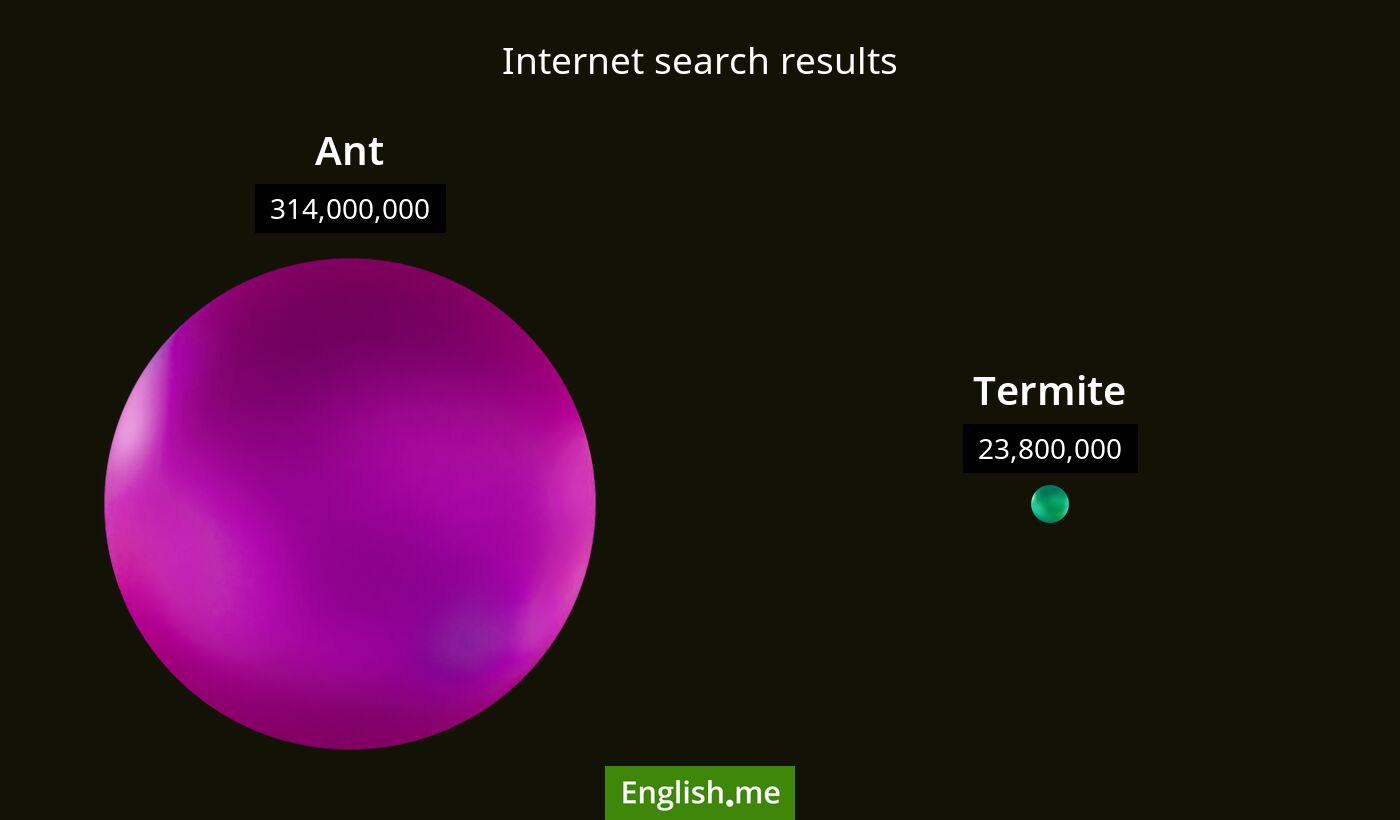"Ant" vs. "termite": the tiny giants of the insect world
Reviewed and edited by  Anwar Kareem 08/10/2024, 03:52
Anwar Kareem 08/10/2024, 03:52
English.me team member

 What is similar?
What is similar?
Both ants and termites are social insects that live in colonies. They are often found in similar environments and have complex social structures.
 What is different?
What is different?
Ants belong to the order Hymenoptera and are closely related to bees and wasps, whereas termites belong to the order Blattodea and are related to cockroaches. Ants typically have a narrow "waist" between their thorax and abdomen and bent antennae, while termites have a broad connection between thorax and abdomen and straight antennae. The social structure and behavior also differ in ants and termites, and they tend to feed on different materials, with termites consuming wood and other cellulose-based materials.
 Which one is more common?
Which one is more common?

 Examples of usage
Examples of usage
Ant- The ant carried a leaf fragment back to its colony.
- Ants can often be seen forming long lines as they travel.
- The picnic was disrupted by a swarm of ants attracted to the sweet food.
- The wooden beam showed signs of damage caused by termites.
- Termites play a crucial role in breaking down dead wood in forest ecosystems.
- Homeowners are often concerned about termites compromising the structure of their houses.

 English
English español
español française
française italiano
italiano deutsche
deutsche 日本語
日本語 polski
polski česky
česky svenska
svenska Türkçe
Türkçe Nederlands
Nederlands